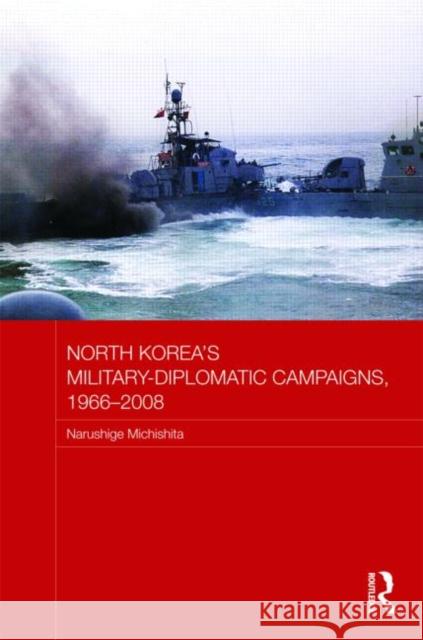North Korea's Military-Diplomatic Campaigns, 1966-2008 » książka
North Korea's Military-Diplomatic Campaigns, 1966-2008
ISBN-13: 9780415449434 / Angielski / Twarda / 2009 / 296 str.
North Korea's Military-Diplomatic Campaigns, 1966-2008
ISBN-13: 9780415449434 / Angielski / Twarda / 2009 / 296 str.
(netto: 761,05 VAT: 5%)
Najniższa cena z 30 dni: 730,42
ok. 30 dni roboczych.
Darmowa dostawa!
This book examines North Korea's nuclear diplomacy over a long time period from the early 1960s, setting its dangerous brinkmanship in the wider context of North Korea's military and diplomatic campaigns to achieve its political goals. It argues that the last four decades of military adventurism demonstrates Pyongyang's consistent, calculated use of military tools to advance strategic objectives vis a vis its adversaries. It shows how recent behavior of the North Korean government is entirely consistent with its behavior over this longer period: the North Korean government's conduct (rather than being haphazard or reactive) is rational - in the Clausewitzian sense of being ready to use force as an extension of diplomacy by other means. The book goes on to demonstrate that North Korea's "calculated adventurism" has come full circle: what we are seeing now is a modified repetition of earlier events - such as the Pueblo incident of 1968 and the nuclear and missile diplomacy of the 1990s. Using extensive interviews in the United States and South Korea, including those with defected North Korean government officials, alongside newly declassified first-hand material from U.S., South Korean, and former Communist-bloc archives, the book argues that whilst North Korea's military-diplomatic campaigns have intensified, its policy objectives have become more conservative and are aimed at regime survival, normalization of relations with the United States and Japan, and obtaining economic aid.
This book examines North Korea’s nuclear strategy over a long time period from the early 1960s, setting the nuclear strategy in the wider context of North Korea’s military and diplomatic campaigns to achieve its political goals. It shows how recent behaviour of the North Korean government is entirely consistent with its behaviour over this longer period; that the behaviour of the North Korean government is rational in the Clausewitzian sense of being ready to use force as an extension of diplomacy by other means; and that a primary concern for the North Korean government is the military balance as it sees it in the Korean peninsula and more widely, this concern being the prime determinant of its behaviour. The book goes on to argue that the North Korean leaders have learnt lessons from their earlier "calculated adventurism", discussing how they conducted themselves in a series of earlier crises such as the Pueblo Incident of 1968 and the first nuclear crisis of the early 1990s and how they are applying the lessons in the conduct of their present military-diplomatic campaign. It concludes that stability rather than instability is the aim of the North Korean leaders; and that their "calculated adventurism" has been remarkably successful in achieving their aims.











